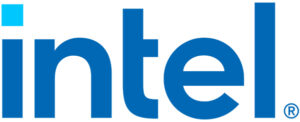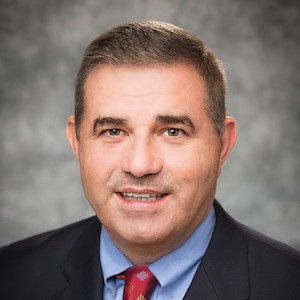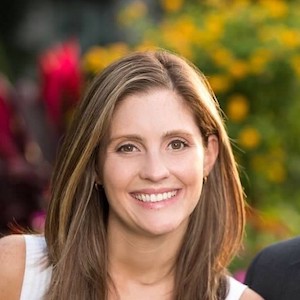Stephen O’Grady: At noon, I actually remember this vividly, because kids everywhere were running around, and I had to get into the shade, and I normally enjoy the sun. I can bask in the sun for hours on end, but it was stifling hot.
Danielle Applestone: That’s Stephen O’Grady recalling an escape to the interior of British Columbia, Canada with his girlfriend and dog. It was a particularly warm weekend, and they were some six hours from their home in Vancouver.
Stephen O’Grady: It was 40 degrees. And when we packed everything in and started returning home, I realized that it was also 40 degrees at our apartment.
Danielle Applestone: For those who don’t speak metric, that would be 104 degrees Fahrenheit. You’re welcome. History records that humans of past centuries used a fan, or ice, or a cool wet cloth to cope with scorching summer heat. Being a creature of the 21st century, Stephen O’Grady used his phone.
Stephen O’Grady: So from the road, a couple hours before we got home, while I was enjoying that drive back in the sun, I turned on the air conditioner. I don’t know how far away we were, but it was like I said, a couple hours. So that was enough time for the air conditioner to kick in. It definitely made the return home with all of your camping gear, with a dog who’s been in the sand and the lake for days, it made all of that easier. And we didn’t have to sweat to get from the front door to the living room, thanks to the air conditioning unit.
Danielle Applestone: What’s so remarkable about this story is that it’s so unremarkable. Generations ago, the comfort and ease of smart home technologies would have been viewed as science fiction. For today’s apartment renter, the comfort and ease of digital technology are fast becoming table stakes. And as you’re about to hear, those who manage their buildings know it. I’m Danielle Applestone, engineer, entrepreneur, and someone not completely at ease in a home that thinks it’s smarter than I am. This is Technology Powers X, an original podcast from Dell Technologies. In this episode, technology powers home, smart home.
When not on vacation, Stephen O’Grady is a product manager in the tech sector.
Stephen O’Grady: I enjoy tinkering, and currently living in Vancouver, there’s not a lot of space. So we’re in a 600 square foot apartment, and we aim to be outside as much as we can. But when I find myself inside on a rainy day, I’ll probably be playing with different little trinkets and tools and automations and trying to augment the way that I exist in this space. There’s not a ton of it. So we try to be mindful of efficiencies, making things easy, and improving the quality of life that we have in such a modest but tiny space.
Danielle Applestone: His smart air conditioner is but the tip of the iceberg. As his friends are quick to point out, when there’s not a smart product to make his home life easier, he’ll invent one.
Stephen O’Grady: I think I have 20 plus Phillips Hue lights right now, in 600 square feet. So when they realize that and they give me a bit of a hard time, I actually view it as just me trying to experiment a little bit and see if there are ways to make my life a little bit easier. One of my favorite automation routines here is to wake up in the morning and just hover my cell phone over an NFC tag, that turns all the lights on and gives me an update and tells me what the news is.
Danielle Applestone: O’Grady programs has smart led lights in festive colors at Christmas. Come game time, they light the room in the colors of his favorite hockey team. With the phrase…
Stephen O’Grady: Hey, Siri, it’s movie time.
Danielle: His smart speaker dims the lights and says…
Speaker 3: On it, great, grab some popcorn, sit back and enjoy the show. Roll credits.
Danielle Applestone: Stephen O’Grady is part of a fast growing wave of home tech evangelists, bringing a whole new set of expectations when looking to rent an apartment. Enter RealPage. Barry Carter is vice president and chief information officer.
Barry Carter: RealPage provides Cloud-based on-demand software and data analytics for customers within the real estate industry. Specifically, the rental industry, focusing on residential and commercial rental properties. We support apartment buildings, single family homes, and vacation rentals.
Danielle Applestone: And how exactly do you apply technology to commercial property management? For customer experience, it begins with connectivity.
Barry Carter: This is the place that you go to pay your rent. That’s the place you go to get connected with your community and get plugged in, learn about what’s going on in your community.
Danielle Applestone: At RealPage, John Hinckley is vice-president of Living Sweet. Among its trio of platforms designed to help property managers with marketing and operations, is Active Building.
John Hinckley: For the renter, Active Building is the core resident platform that supports the various functions such as paying your rent, submitting your service request, getting your notifications, your package delivery alerts while living at the community. It is kind of the go-to platform for the resident to access various amenities, and get to know their neighbors in a social experience.
Danielle Applestone: Having residents interact through a digital portal creates a wide range of opportunities for relationship building. Among them, a loyalty program.
John Hinckley: So each resident has an opportunity through community rewards to earn points along their living journey, much like how you would see at the airline industry or in the hotel industry. So, in multifamily, and in the apartment world, the more you engage with your apartment community, the more points you earn. And it’s a great way for a property manager to show appreciation to their residents, to capture the attention of residents, and maybe motivate them to do things that we want them to do, and participate in events and contests, and really drive more connection in the community.
Danielle Applestone: He goes on to explain that the connection and connectivity doesn’t end there.
John Hinckley: The third platform that we use inside the living suite is our recently launched platform called Community Connect, which is an end-to-end IOT offering. And this provides access via community-wide locks, smart devices, secure personal wifi networks, enabling residents to enjoy easier ways to live, work, and play as the next generation of connected apartment buildings.
Danielle Applestone: Initiatives, such as Community Connect, anticipate the changing demands of clients in the digital world.
John Hinckley: So the ability to access your community or your unit through your cell phone, using these electronic locks and not just actually for your unit, but for the whole community, the ability to access the gate or access a common area, all tied to your phone, you don’t even have to hold your phone up. When you get close to the door, it knows you’re there, you walk right in. It gives you a true sidewalk to sofa experience at these communities. And they also have smart thermostats, smart lighting, leak-sensing detectors, shade control, fan control, voice control, really everything you need at your fingertips.
Danielle Applestone: Multiply RealPage’s client portals, its client services, requests, and points of contact across all its clients, and the enormous volume of data gathered, and you start to get an idea of the scope of what RealPage is doing. Barry Carter.
Barry Carter: Our systems are mission critical to RealPage, and to the customers of RealPage because we’re running their business on our platform. We process over five billion transactions and process over two million reports on any given day. So our processing supports our customer’s ability to interact with their customers.
Danielle Applestone: Reliability, flexibility, and scalability are essential to RealPage’s smooth everyday operation. Alison Langon of Dell technologies leads the As a Service Offer marketing team.
Alyson Langon: So in order for businesses to be successful and future-proof their business, they really need consistent infrastructure that can handle and optimize for both traditional as well as next generation, these modern applications, without having to compromise on some of the enterprise class data features, performance, scale.
Danielle Applestone: To Barry Carter, the broad varying needs of a company like RealPage require an infrastructure that is as powerful and agile as it is reliable, which led them to Dell EMC PowerStore.
Barry Carter: We chose PowerStore to replace an old IO intensive frame that was very expensive to operate. And so the PowerStore gives us incredible compression and dedupe. It handles a significant IOP load as well as it supports the new disc technology with NVME. And it supports six nines of availability.
Danielle Applestone: As Alyson Langon explains, providing the right infrastructure comes from listening to customers, and anticipating their needs.
Alyson Langon: PowerStore was built from the ground up with a data-centric, intelligent and adaptable architecture that enables organizations such as RealPage to be more agile, and not have to make trade offs for things like performance, scalability, and efficiency. Also, the AppsOn capability enables customers to run virtualized VMware apps directly on the appliance. You have the anytime upgrade program, which enables customers to modernize their system over time without forklift upgrades.
Danielle Applestone: The task of anticipating customer needs is inspiring more than new technologies. It’s also inspiring a whole new range of customer options, including how they consume their IT infrastructure.
Alyson Langon: We don’t know what the world’s going to look like in six, 12, 18 months from now. So being able to respond to change in business demands in real time is really important. This is why we announced Project APEX at Dell Technologies World. This is a move towards delivering our industry leading portfolio as a service. And the first flagship offering that’s going to be coming soon is storage as a service, which is going to provide customers elastic, flexible file or block services.
Danielle Applestone: Meanwhile, as John Hinckley notes, the data RealPage accumulates allows it to combine future proofing with future planning, leveraging its vast stores of data is helping them improve their customer experience.
John Hinckley: When you have the ability to track access all throughout a community and what residents are using, you can start asking yourself the question when you’re developing new assets, do we really need this common area? We’re looking at this clubhouse, and we’re only seeing one resident a week actually accessing it, because you’re able to, how they access and move throughout the communities. Maybe we should use that to create maybe a work from home set up instead of just a common area that really does meet the needs of residents. You can actually develop better assets for the residents by actually studying this data and figuring out how to actually continue to evolve and innovate in our development as we continue to add this new technology.
Danielle Applestone: The efficiency provided by that new technology extends through everything RealPage does. And part of that benefit is a positive impact on the environment.
John Hinckley: I mean, obviously, smart apartments really give a resident a wow factor. This frictionless living experience, sidewalk to sofa, obviously that’s a great experience that really does a lot and really improves the life of a renter, but also for asset managers, it’s just the increase in energy efficiency that really makes a huge impact. Not just for NOI purposes, but for the environment, the ability to control climate, to make sure that you’re not using energy when you don’t need it. The way you can actually have a technology that detects leaks to prevent leaks and loss of water damage to an asset, things that will alert you of a problem early on.
Danielle Applestone: That combination of tech powered management, smarter buildings, and environmental benefits may be just the ticket for today’s apartment dwellers, whose technology wants are fast becoming musts. Stephen O’Grady.
Stephen O’Grady: I take a bit of a futurist’s angle to this, or maybe an optimist’s angle to this, is probably more appropriate. But if we see builders, landlords, people responsible for buildings before they’re occupied, if we see an introduction or even a bundling of that smart technology and the ecosystems that come with that into the space that you live in, it really brings this idea of having a total package. Smart lights, locks, an HVAC system. And in my mind, it’s something that starts off as an amenity. So it’s kind of like your communal gym, but over time that could quickly become a bit of a utility.
Danielle Applestone: This spirit of bringing technologies together seamlessly is very much a part of the RealPage mission.
John Hinckley: What excites me the most about the future of the Living Suite and with RealPage, it’s really the consolidation of the various prop tech offerings and solutions into more of a single solution, both for the resident and for the customer. So while there’s so many really great platforms and technologies that have been created, it still can be a little bit fractured for the resident in their experience. So for example, when they move in to a community, in some scenarios you might see them being asked to download three, four, even five apps, a smart home app, a portal app, a concierge’s app, a rent app, a maintenance app.
Danielle Applestone: It’s worth adding that this growing demand for technology-driven living doesn’t make a 21st century urban dweller like Stephen O’Grady a digital zealot. There are times he’s happy to embrace some good old fashioned low tech.
Stephen O’Grady: Personally, I like having a simplified ecosystem, and not having too many different platforms competing essentially with one another. But just because you can automate something doesn’t mean you need to. I have friends who asked, “Can I grind my coffee automatically in the morning and just pour the beans in the night before, and then wake up to the freshly ground coffee?” You absolutely can. But personally I prefer the slow and steady pace of grinding your coffee in the morning is fun to have with a routine that isn’t automated, and you don’t always have to overdo it.
Danielle Applestone: True, but that doesn’t mean O’Grady is giving up his synchronized team colored lighting on hockey night. That’s just too fun. This is Technology Powers X, an original podcast from Dell Technologies. For more information on the Dell EMC PowerStore, go to DellTechnologies.com/PowerStore. To learn about Dell Technologies Project APEX, go to DellTechnologies.com/APEX. If you want to read this episode’s transcript, learn more about our speakers, and check out some great resources, visit DellTechnologies.com/TechnologyPowersX. I’m Danielle Applestone. Thanks for listening.
 Dell Solutions with Intel®
Dell Solutions with Intel® Stephen O'Grady
Smart Home Enthusiast
Stephen O'Grady
Smart Home Enthusiast
 Barry Carter
Vice President and CIO, RealPage
Barry Carter
Vice President and CIO, RealPage
 John Hinckley
Vice President of Living Suite, RealPage
John Hinckley
Vice President of Living Suite, RealPage
 Alyson Langon
As A Service Offer Marketing, Dell Technologies
Alyson Langon
As A Service Offer Marketing, Dell Technologies
